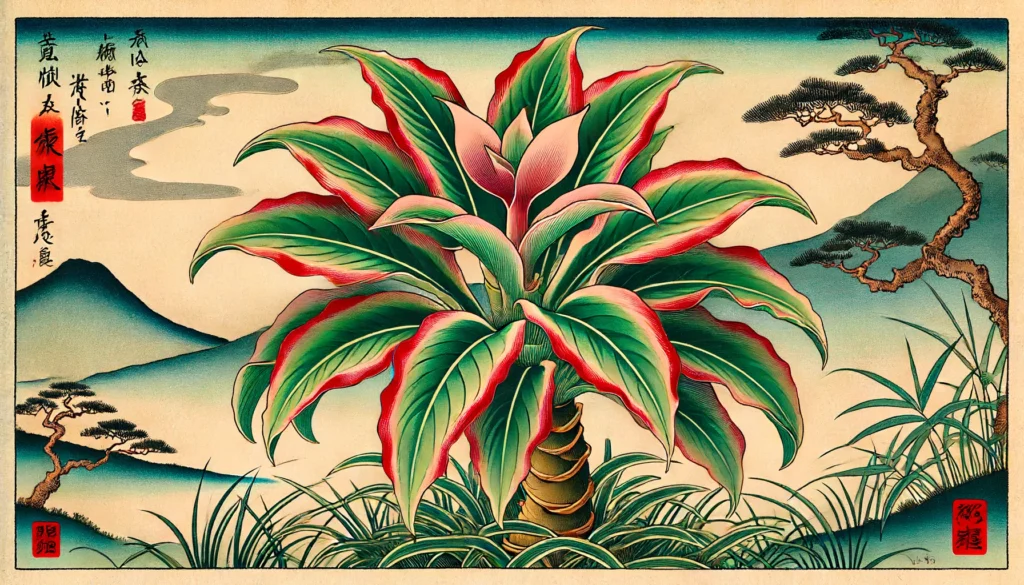

Home » Cat Plants » How Dangerous is the Baby Doll Ti Plant for Cats?

The doll ti plant (Cordyline terminalis), also known as baby doll ti plant, Hawaiian ti plant, or good-luck plant, is a popular ornamental houseplant that is toxic to cats.
While cats are not actually allergic to doll ti plants, ingesting any part of the plant can cause serious health issues due to the presence of saponins, which are natural chemicals produced by the plant to protect itself from pests and diseases. Doll ti plants are commonly found as indoor plants in homes and offices.
Ingestion may cause mild gastrointestinal upset, but is generally not life-threatening.
Ingestion can result in mild symptoms like vomiting, diarrhea, or drooling. Rarely fatal but may require veterinary care.
Eating these plants can lead to more pronounced symptoms like abdominal pain, lethargy, or difficulty breathing. Veterinary intervention may be necessary.
Ingesting even small amounts can cause severe symptoms like organ damage, seizures, or cardiac failure without rapid treatment.
All parts of these plants are extremely poisonous to cats and can quickly lead to death, even with immediate veterinary care.
** Please note: Please note that toxicity level can vary based on the amount ingested and the specific cat. It's always best to keep these plants completely inaccessible to cats and seek immediate veterinary care or call the poison hotline if you suspect your cat has ingested any part of a toxic plant.
If a cat ingests any part of a doll ti plant, it may experience various symptoms due to the toxic saponins present in the plant. The most common signs of doll ti plant poisoning in cats include:
In severe cases, ingestion of large amounts of the plant may lead to more serious symptoms, such as difficulty breathing, tremors, or collapse. If you suspect your cat has consumed any part of a doll ti plant, seek veterinary care immediately.
If you bring your cat to the veterinarian suspecting doll ti plant poisoning, they will perform a thorough examination and ask questions about your cat’s exposure to the plant. The diagnostic process may include:

A: Yes, cats can be allergic to Baby Doll Ti Plant. Symptoms of an allergic reaction may include itching, sneezing, and skin irritation.
A: Yes, Baby Doll Ti Plant is toxic to cats. Ingesting any part of this plant can cause symptoms such as vomiting, diarrhea, and lethargy.
A: Symptoms of Baby Doll Ti Plant poisoning in cats include vomiting, diarrhea, drooling, and abdominal pain. Immediate veterinary care is recommended if ingestion is suspected.
A: To prevent contact, ensure that Baby Doll Ti Plant is not present in your home or garden. Keep your cat indoors or monitor outdoor activities closely to avoid exposure.
A: If your cat ingests Baby Doll Ti Plant, contact your veterinarian immediately. Do not induce vomiting unless instructed by a veterinary professional. Immediate medical attention is necessary.
A: Yes, Baby Doll Ti Plant is commonly found in homes and gardens as an ornamental plant. It is important to ensure this plant is kept out of reach of cats to prevent accidental ingestion.
The doll ti plant is native to Southeast Asia, eastern Australia, and the Pacific Islands, including Hawaii. It has been cultivated for centuries for its attractive foliage and cultural significance. In Hawaiian culture, ti plants are considered sacred and are used in various ceremonies and rituals.
The plant was introduced to Europe and other parts of the world as an ornamental plant in the 19th century and has since become a popular houseplant due to its vibrant, colorful leaves and ease of care.
Please note: The information shared in this post is for informational purposes only and should not be considered as veterinary medical advice.
🐾 A hilarious or heart-melting cat video
🐾 Our latest paws-on review of a cool cat toy